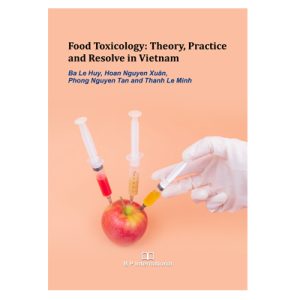The global food system today stands at the intersection of public health and environmental sustainability, as urbanisation and industrialisation have significantly altered dietary patterns, shifting towards convenience and processed foods. This book, Health and Environmental Challenges in Food Consumption and Production*, explores the complex relationships between modern food choices and their impacts on both human health and the environment. Using an interdisciplinary approach, it integrates insights from nutrition science, public health, environmental studies, and behavioural economics to examine the pathways through which food systems affect people and the planet. The book is organised into five chapters, starting with an overview of the connection between food systems, health, and environmental outcomes. It then explores the public health implications of processed foods, focusing on sodium consumption and its links to non-communicable diseases, with a case study from Thailand on sodium levels in noodle-based soups. The third chapter discusses the environmental costs of modern food production and suggests sustainable alternatives, while Chapter Four analyses urban food behaviours and the rise of convenience culture. The final chapter examines current policies and educational strategies, proposing a vision for healthier, environmentally responsible food systems. This volume is intended for scholars, policymakers, and anyone interested in the future of food, with the hope of inspiring collaborative action and deeper understanding of how food choices influence both individual health and global sustainability.
Health and Environmental Challenges in Food Consumption and Production
Theeranat Suwanaruang
Faculty of Science and Health Technology, Kalasin University, Thailand.
Wasana Nachaireim
Kommalasia Hospital, Kalasin, Thailand.
Kamollapat Chaisongkram
Faculty of Education and Educational Innovation, Kalasin University, Kalasin, Thailand.
Wannatida Yonwilad
Faculty of Education and Educational Innovation, Kalasin University, Kalasin, Thailand.
Nataya Hokpanna
Faculty of Education and Educational Innovation, Kalasin University, Kalasin, Thailand.
Book Details
| Author(s) | Theeranat Suwanaruang |
|---|---|
| Pages | 117 |
| Publisher | BP International |
| Language | English |
| ISBN-13 (15) | 978-93-49729-22-3 (Print) |
| Published | April 23, 2025 |





